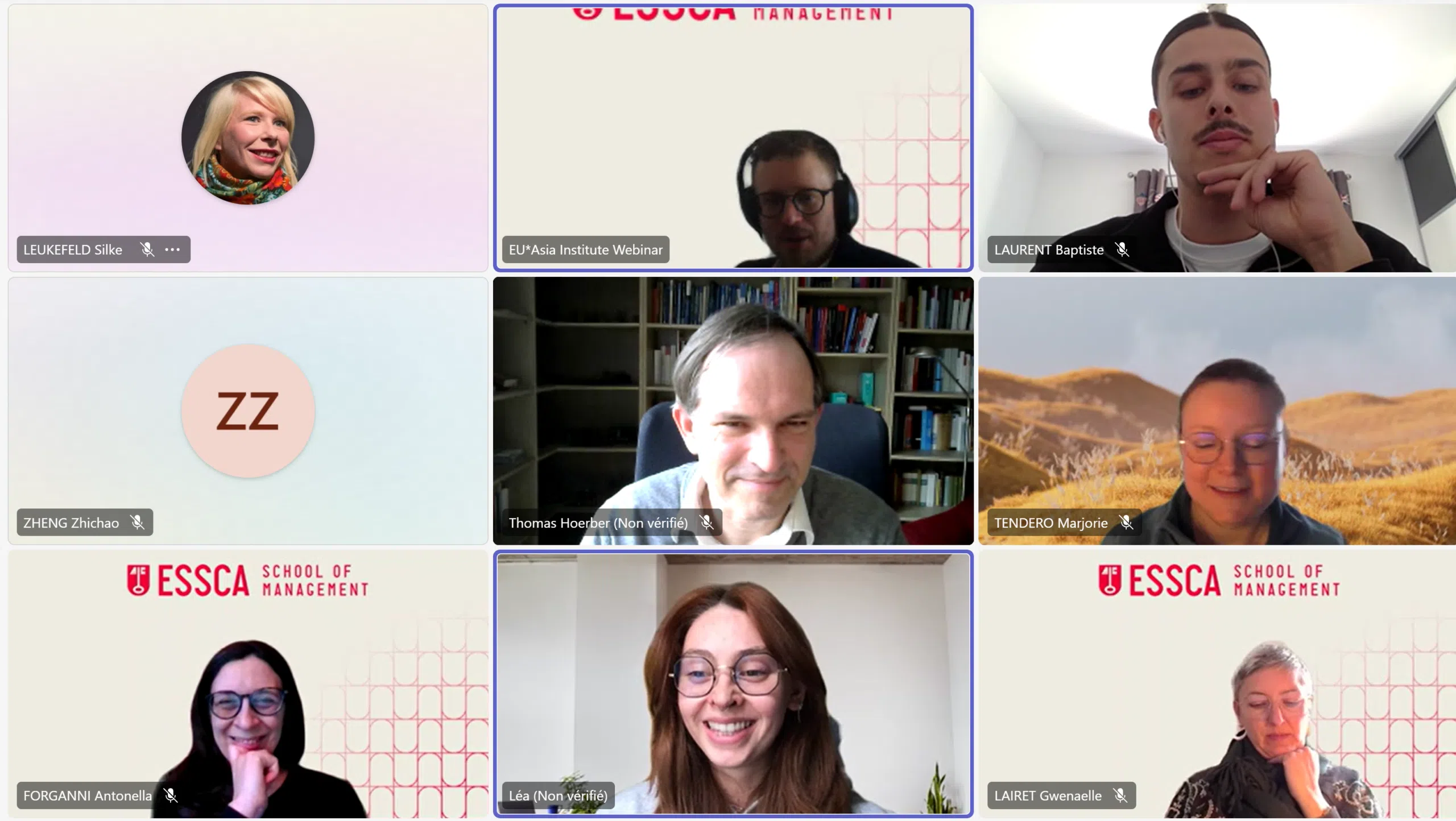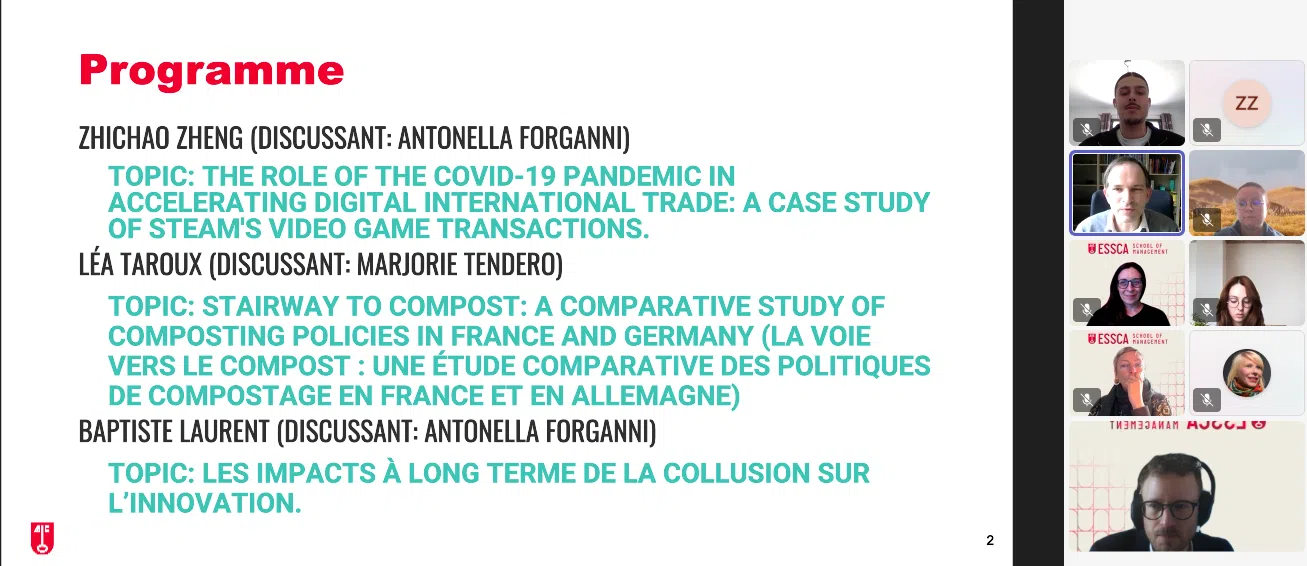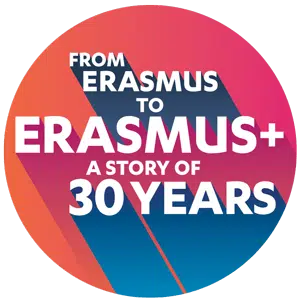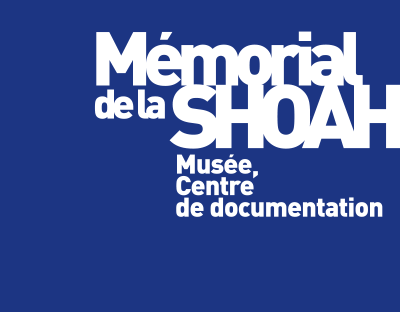Date: Friday, 28 March 2025, 14:00, online via TEAMS
Convenor: Christoph Weber, EU*Asia Institute at ESSCA School of Management
The EU*Asia Institute held its second Master's Thesis Conference on March 28, 2025, building on the success of its inaugural edition in 2024. The event featured three master's students presenting their research on diverse and impactful topics.
The conference provided a valuable opportunity for students to present their work, receive constructive feedback, and engage in discussions with peers and faculty members.
Presentations
Introduction and moderation by Christoph Weber
Zhichao Zheng (Discussant: Antonella Forganni)
Topic: The Role of the COVID-19 Pandemic in Accelerating Digital International Trade
Zhichao Zheng's presentation focused on how the COVID-19 pandemic influenced global trade, particularly in the digital sector.
Using Steam's video game transactions as a case study, Zhichao explored the pandemic's impact on digital international trade. He highlighted the significant increase in Steam's revenue during the pandemic and discussed the platform's strategies for adapting to the surge in demand.
Zhichao's research questions delved into the long-term implications of these changes and the potential for digital trade to replace traditional trade. His methodology included a combination of literature review, theoretical framework construction, and qualitative interviews with key stakeholders.
Léa Taroux (Discussant: Marjorie Tendero)
Topic: Stairway to compost: A comparative study of composting policies in France and Germany
Léa Taroux presented her research on composting policies in France and Germany, focusing on the role of local policies in promoting sustainable composting practices.
She provided a historical overview of composting, discussed various composting techniques, and analyzed the legislative frameworks in both countries. Léa emphasized the importance of citizen participation and awareness in successful composting programs. Her methodology involved qualitative research, including interviews with representatives from municipalities, local associations, and citizens.
Léa's work aimed to fill the gap in existing literature by exploring the governance aspects of composting policies.
Baptiste Laurent (Discussant: Antonella Forganni)
Topic: Les impacts à long terme de la collusion sur l’innovation. (The long-term impacts of collusion on innovation.)
Baptiste Laurent's research examined the long-term effects of collusion on technological innovation.
He discussed the balance between competition and cooperation in fostering innovation and the role of public policies in regulating these dynamics. Baptiste used examples from various industries to illustrate his points, including the semiconductor and pharmaceutical sectors. His methodology included a review of existing literature and case studies, as well as interviews with industry experts.
Baptiste's work aimed to provide insights into how collusion can impact innovation and the broader economic implications.
Feedback and Discussion
Each presentation was followed by an in-depth discussion led by discussants Antonella Forganni and Marjorie Tendero. They commended the students for their rigorous research and insightful analyses while offering constructive feedback on refining research questions, incorporating additional data sources, and considering broader implications.
Thomas Hoerber also provided feedback, highlighting the need for analytical structure and objectivity in research.
The discussions were lively and engaging, with participants exchanging ideas and exploring potential collaborations.
Conclusion
The conference concluded with closing remarks from Christoph Weber, who thanked the participants for their contributions and encouraged them to continue their academic pursuits. He emphasized the importance of sharing research findings and the potential for these studies to impact broader academic and professional communities.
Overall, the second EU*Asia Institute Master's Thesis Conference was a successful event that showcased the diverse and impactful research conducted by master's students. It provided a valuable platform for academic exchange and highlighted the importance of collaboration and critical thinking in academic research.






